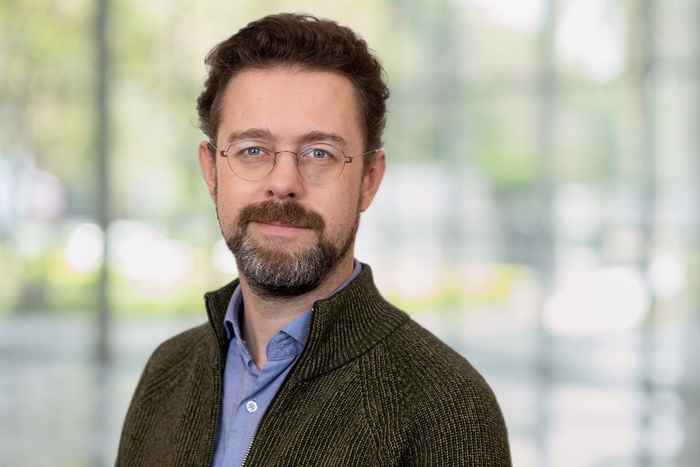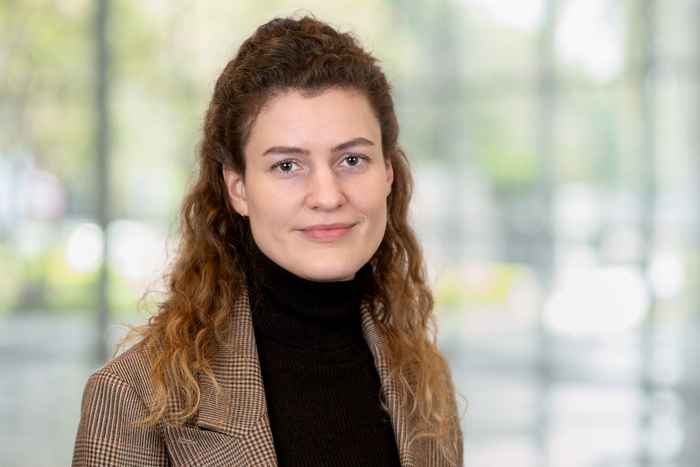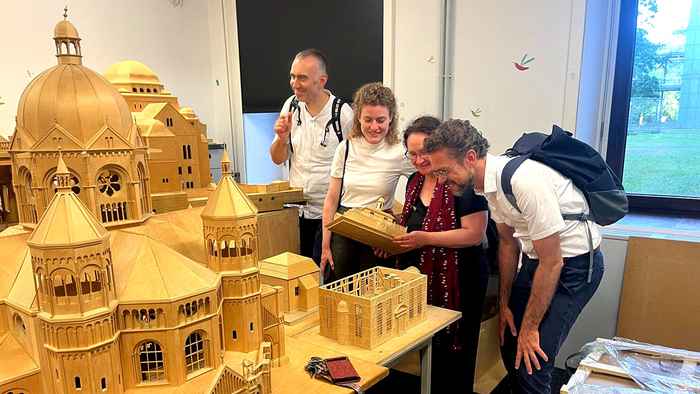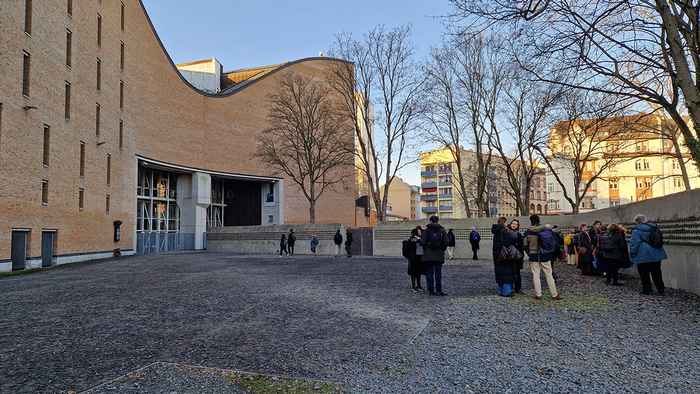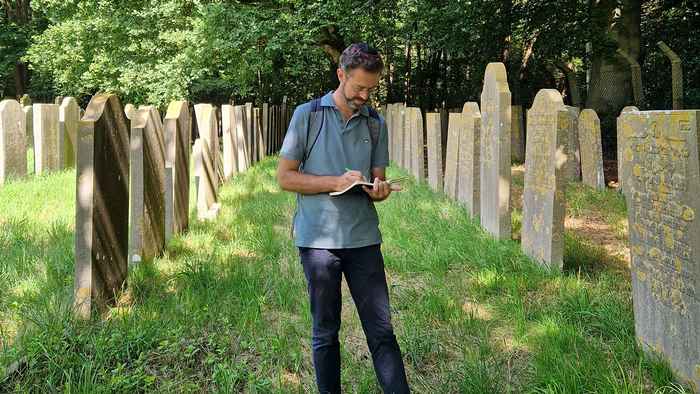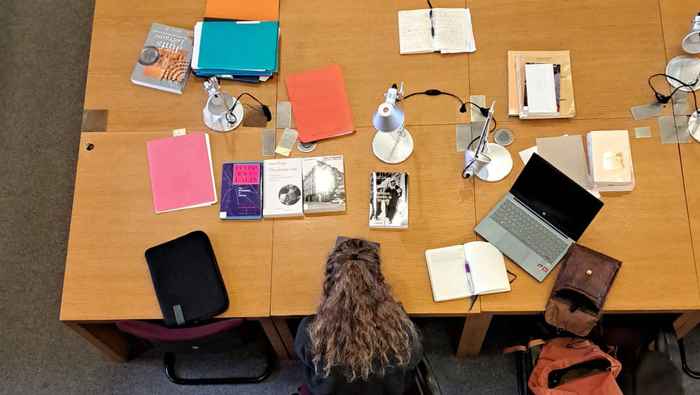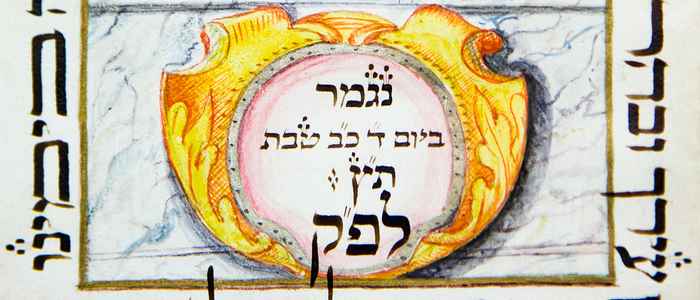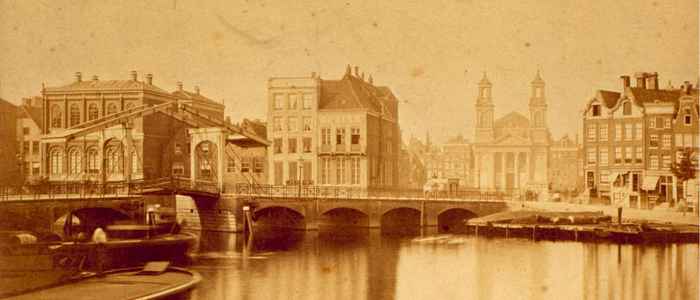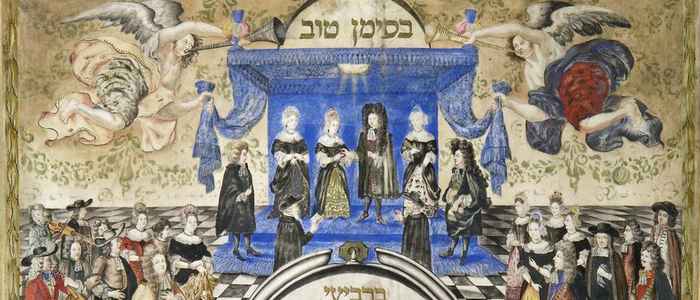Anchored in Amsterdam, with its long and vibrant Jewish past, we are building a European centre of expertise in Jewish urban history, working closely together with academic and heritage partners on the local, the national, and the global level. Since the start of our project in 2023, we have initiated and organised numerous sub projects, conferences, and teaching activities. A selection is listed on this website.
Next to these ventures, we collaborate with public history project De Joodse Stad and are developing several heritage-focused projects, such as within the NWO-funded consortium Traumascapes. We also regularly give lectures for a broader audience on topics ranging from overviews of Amsterdam’s Jewish history, the contested nature of Jewish urban heritage, and comparing Jewish quarters to specific Jewish spaces such as the “Jewish canals” neighbourhood and the Portuguese Synagogue.
Team
Activities
Our book project Atlas of Jewish Urban Cultures (forthcoming 2028 with WBOOKS) explores Jewish urban history in Europe from antiquity to the present day. The book includes different thematical contributions from leading scholars in the field of Jewish studies. Textual contributions are accompanied with maps, infographics, images, graphs, and tables. A Dutch translation of the book will target a wider audience.
We initiated a new book series Jewish Urban Cultures (Taylor & Francis) to provide the field with more visibility and coherence.
Together with Susanne Korbel (University of Graz), we are organising the specialist session “Jewish City Biographies: Issues, Themes, and the Definition of a Genre” at the European Association for Urban History Conference in Barcelona, Spain in September 2026. This session will be the first step towards establishing the historiographical genre of the Jewish city biography. It aims to discuss the main methodologies for writing Jewish city biographies, chart the toolbox of their authors, and map the best practices of current scholars working in the field.
Zooming in on French and Dutch case studies, in May 2025, we organised the event “The Jewish Street: Amsterdam and Paris After 1945” in collaboration with SPUI25, the Menasseh ben Israel Institute, and the Amsterdam Centre for Urban History. Bart Wallet introduced the concept of the Jewish street, after which Sarah Gensburger (CNRS/Sciences Po) and Eric Le Bourhis (Inalco) gave a lecture on the Rue des Ecouffes, and Sietske van der Veen highlighted the Rapenburgerstraat in her lecture.
In May 2025, together with Julia van der Krieke, project leader of De Joodse Stad, we organised the programme “Intersecting Book Culture and Spatiality in Early Modern Jewish Amsterdam” for PhD and MA students in early modern Jewish history from Tel Aviv University.
In collaboration with the Netherlands Institute at Athens and the Workshop on the Study of the Jews in Greece, we organised the two-day conference “Jewish Urban Landscapes in Mid-20th Century Europe” in Athens, Greece in February 2025. The conference brought together participants from all over Europe and the US and covered mid-twentieth century Jewish sites and quarters in Romania, Hungary, Poland, Germany, Italy, France, Sweden, Belgium, Greece, and the Netherlands. We shed light on what happened to Jewish sites and quarters in urban environments throughout Europe between 1930 and 1970. Currently, we are editing an invited special issue of the Journal of Modern Jewish Studies (Taylor & Francis) on this topic, which is due to appear in 2026. It will include contributions by us on post-war Rotterdam, The Hague, and Amsterdam.
The symposium “Dynamics of Jewish Broadsides: 500 Years of Jewish History Through the Lense of Single Sheet Prints” organised with the Menasseh ben Israel Institute in November 2024 enabled us to shed light on daily life in Jewish Amsterdam from the early seventeenth century to the post-WWII period.
During an expert meeting on eighteenth-century Jewish Amsterdam in November 2024, we explored themes such as spatiality, gender, and Jewish/non-Jewish encounters together with colleagues from Europe, the US, and Israel, through workshops and site visits.
The dynamics of Amsterdam’s early modern rabbis were at the centre of the conference “The Rabbis of Early Modern Amsterdam: Challenges, Achievements and Legacies” organised together with the University of Wisconsin-Madison and the Menasseh ben Israel Institute in May 2024. New research was presented on how rabbis interacted with major urban challenges in the seventeenth and early eighteenth century.
In October 2023 we co-organised, with the University of Wrocław and the European Association of Jewish Studies, a workshop on “Digital Mapping Approaches to European Jewish History” specifically aimed at early career scholars in Wrocław, Poland.
We started our research cluster’s activities with a January 2023 international conference on “Revolutionizing the City: Urban Reality in the Wake of October 1917” organised together with the Nevzlin Center at the Hebrew University of Jerusalem and the Open University of Israel.
Teaching
Every year, our MA students in Jewish studies develop their expertise through participation in the International Travelling Winter School, peeling away the different layers of urban environments throughout Europe. The Winter School, a collaboration with the Université Paris I Panthéon-Sorbonne and the Open University of Israel, brings academic Jewish studies in dialogue with local Jewish life and heritage and enables graduate students and staff members to expand their international networks. Since the start of our project, it has travelled to Pisa, Italy (theme: “Borders, Boundaries, and Transgressions: The Italian Jewish Case”), and Frankfurt am Main, Germany (theme: “Presence and Absence in Jewish History: Looking Through the Prism of Ashkenaz and German Jewry”). In January 2026, we will be hosted in Paris (theme: “Being and Belonging: French Perspectives on Jews and the Complexities of Love”).
For MA students in various programmes, we also give tutorials. In the last few years topics included: Amsterdam Jewish History; Jews and Poverty in the City; Jewish Narrativity and Spatiality; and History of Jewish Amersfoort.
Jewish urban history is also one of the thematic lines in which we supervise BA and MA theses. Topics have included Jewish street vendors in the long nineteenth century; comparing post-war Jewish quarters of Prague and Amsterdam; Amsterdam’s Jewish quarter as heritage site; and Meyer Sluyser’s nostalgic descriptions of Amsterdam’s Jewish quarter.
Within our project Atlas of Jewish Urban Cultures, we also regularly engage MA students as interns, offering them opportunities to develop research and organisational skills.
